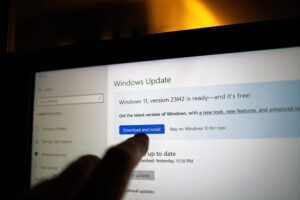How much thought do you put into your digital footprint and privacy? It’s not just about deleting your browser history or having a great password. Text messaging, installed apps, public wi-fi, and even old online accounts you no longer use are a risk. Here are some tips to help you retain your privacy.
Secure your devices
Your phone is the ultimate gateway to your most sensitive data and personal details. iPhones are the most secure and encrypts when the screen is locked; Androids will need to be shut down entirely. Here are some helpful guides to secure your iPhone and most Android devices.
Fingerprint Phone Unlock?
Touch ID or fingerprint sensors seem like a great idea. In general, it is a very secure way to protect others from accessing your device. However, if you are concerned with the feds looking into your device, they can force you to unlock your phone with your fingerprint as it is not a violation of the Fifth Amendment which protects against self-incrimination in the US. They cannot force you to give them your passcode.
Apps that access your data
Most apps will ask for agreement to terms of use and/or permission to access other data on your device such as photos, contacts, or your camera. Free apps are often suspect because they make their money off of the data they access from your account and device, not the download. Only install apps from a trusted source and research the security features.
If you aren’t sure about an app – Call Newave – We Make IT About YOU
Other ways to keep your data more secure
- Set a strong passcode
- Keep your devices and apps up to date
- Delete online accounts you no longer use
- Check the security of your messaging and email
- Always check that the website you visit is secure (HTTPS)
- Stay away from public wi-fi networks; Use your phone data instead






